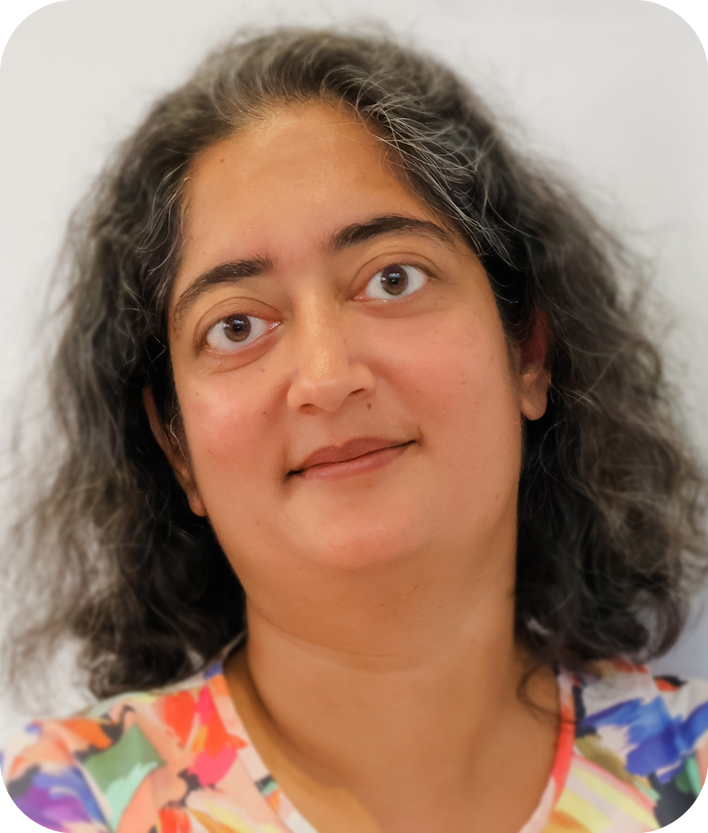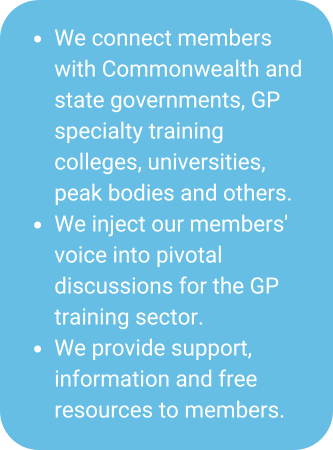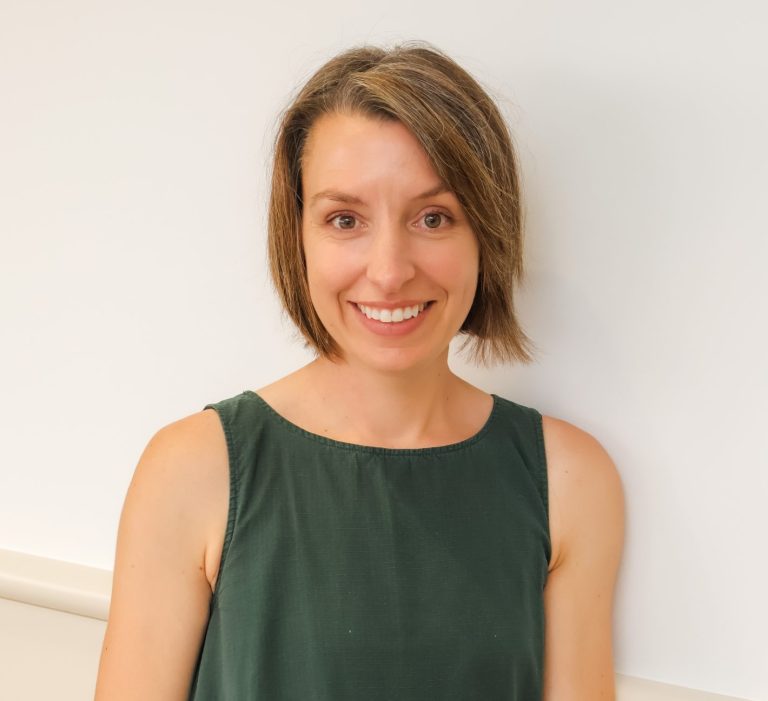Chair Reports -
December 2024

From the Chair...
Unlocking hidden potential through collaboration
As we head into the last month of 2024, I can’t help but reflect on GPSA’s mantra throughout this hectic year:
Collaboration, not competition, is the key to unlocking hidden potential.
As a Board made up of seven very unique individuals working together to support the hardworking GPSA team for the benefit of the Australian GP supervision community, we started 2024 with a commitment to ensuring that GPSA continues to uphold its values, mission and vision. We have held firm to that commitment.
As a Board made up of seven very unique individuals working together to support the hardworking GPSA team for the benefit of the Australian GP supervision community, we started 2024 with a commitment to ensuring that GPSA continues to uphold its values, mission and vision. We have held firm to that commitment.
A highlight for not just GPSA but the sector more broadly this year was the signing of the historic MoU with GPRA – whose members today are, we sincerely hope, our members in the very near future! This MOU’s cementing of collaborative intent has created a framework for our two independent organisations to focus on points of alignment and explore opportunities together to maximise the benefit for our members. This approach has increased the impact of our joint advocacy in areas of enhancing the attraction to GP training; system and structural improvements for registrars, practices and supervisors; expanding the role and visibility of SLOs and RLOs; optimising the outcomes and minimising the unintended consequences of State and Commonwealth initiatives from incentives to WPP to SEM; and much more. We look forward to building on these collaborative efforts together in 2025.
GPSA remains the independent voice for all GPs and RGs involved in supervision and clinical teaching across the sector and the pipeline, and for the practice managers whose contribution extends beyond administration to enabling high quality general practice placements into the future. An organisation’s values are wholly shaped by its members, and this year we have expanded the opportunities for both our clinician members – those who are practice principals as well as those who, like me, are non-owner supervisors – and also practice managers to play a bigger role in shaping our direction in education, research, advocacy and operational supports. To this end we have elevated channels for engagement with us through the GPSA Community, our ENGAGE annual survey, topic-driven working groups, Q&A style webinars, and our more traditional email and phone enquiry options.
As the Achievements Snapshot in our recently-released FY2023-24 Annual Report suggests, this attention to engagement has ensured that our strategic direction has faithfully represented our members’ needs and priorities this year. Another prominent indicator of this is the record level of participation in the decisions made at this year’s AGM – with 485 eligible members contributing to the voting process.
Leading up to the AGM on Thursday 28th, November was another busy month as Team GPSA represented and networked with our members at two of the five sector conferences: the Australia New Zealand Prevocational Medical Education Forum (ANZPMEF) and the annual RACGP conference, GP24. Our CEO Ms Carla Taylor and Education Manager Dr Simon Morgan explored opportunities for collaboration and growth at ANZPMEF in Darwin; and Carla joined me along with our COO Mrs Leonie Chamberlain and Research & Policy Director A/Prof Samia Toukhsati at GP24, which again provided an excellent opportunity to interact with many of our members – and additionally to congratulate the RACGP award winners including GP Supervisor of the Year Dr Meike Flore, winner of the Dr Jeremy Bunker Award for Outstanding Achievement in General Practice Training Ms Lily Thomas, and General Practice of the Year Growlife Medical: which is also a training practice.
Both of these November conferences offered opportunities to hear about what will be expected of supervisors as the AMC framework for prevocational training in the community is operationalised – this being an area GPSA has been active in for the past 12 months, as was solidified in our decision earlier this year to collocate our head office with the Victorian Postgraduate Medical Council (PMCV). GPSA continues to work with sector stakeholders in this space to increase positive, sustainable outcomes and minimise duplication and red tape for our members as the AMC and MDANZ policies push larger numbers of medical students and junior doctors into general practice over the next few years.
At the GP24 prevocational session, the common theme from the audience was that, while supervisors are keen to contribute in any way possible, there is a precarious balancing act between providing clinical care to patients and appropriate input to learners across the educational spectrum. This is definitely the case in the supervision of AGPT registrars too, but sadly we find that the training providers in this Commonwealth-supported pathway have failed to build suitable efficiencies into the requirements imposed on the supervisors at the coalface… without whom there would be no training program.
A prime concern for our members (alongside the impact of current placement processes), and one that drove many discussions at GP24, is the confusion and burden created by the College’s AGPT Supervisor Professional Development (SPD) requirements. In an attempt to collaborate on this issue with a view to preventing the fallout of frustration and fear that has infused the supervisor community in recent months, GPSA has repeatedly offered to work with the RACGP to create clearer and more logical communications about SPD, and to address the absence of asynchronous options – which are typically what busy supervisors need so that they can successfully manage this requirement on top of that precarious balancing act of managing patient care and learner/ trainee supervision! While headway is very slowly being made in this regard, it is still left to GPSA to remind the sector of the value of, and critical role played by, our members.
On a brighter note, at GP24 we had strong interest in our Consultation board game, largely as a Christmas gift for future GPs and educators across the educational spectrum! We also had a lot of enquiries about a research project that’s building on a GPSA study undertaken in 2021-22. Prior to joining the Board, I participated in that earlier project, and am delighted to have the opportunity to further this as a participant whose input will guide the development of resources to attract, support and retain women in GP supervision. Two co-designed programs – by women, for women – will be trialled in 2025: one an orientation program providing a suite of multi-modal resources tailored to women GPs and designed to build confidence and provide clarity about the supervisory role; the other, which GPSA is calling the ‘Women supervisors’ CIRCLE’, provides safe spaces for women GP supervisors to share stories, learn from one another, and build strong connections. You can find out more about the programs here, read the Explanatory Statement and express your interest in our new “Women supervisors’ CIRCLE” program.
While GPSA continues to grow each year, we aim to concurrently grow the sector and community’s appreciation of our members. Please continue to support us, and encourage your colleagues and peers to join this incredible community of practice as well: a community that meets my definition of “GURU” – a Sanskrit word meaning ‘mentor, guide, expert or master of their craft’. Just as this word encompasses the principle of passing on wisdom to the next generation, you as supervisors are the key to perpetuating general practice as a specialty and primary healthcare as the core of our nation’s health system.
Any GP supervisor is a guru. It is time to own it and champion it, for it is a privilege and, with the support GPSA offers and fights for on your behalf, it can be a true joy too.
Dr Srishti Dutta
Chair
Date reviewed: 15 April 2025
Please note that while reasonable care is taken to provide accurate information at the time of creation, we frequently update content and links as needed. If you identify any inconsistencies or broken links, please let us know by email.



